Miroslav Vodolán
Denotation Extraction for Interactive Learning in Dialogue Systems
Jan 09, 2018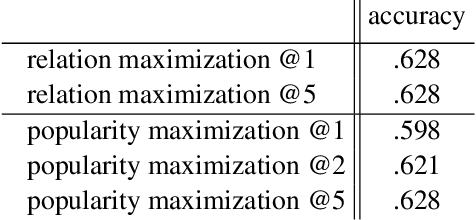
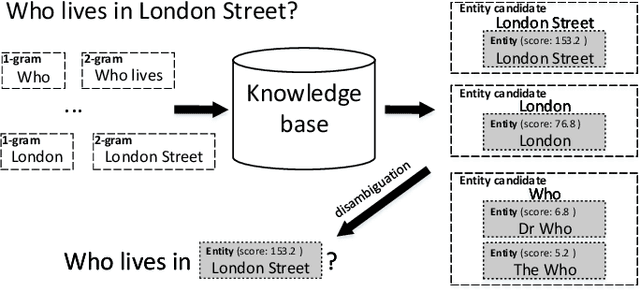
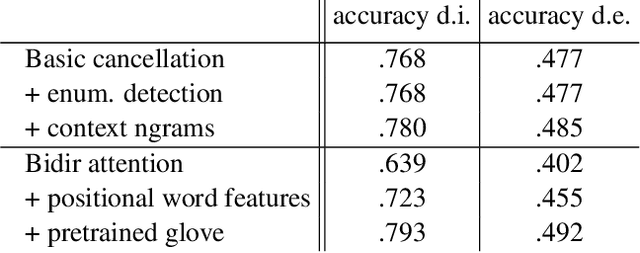
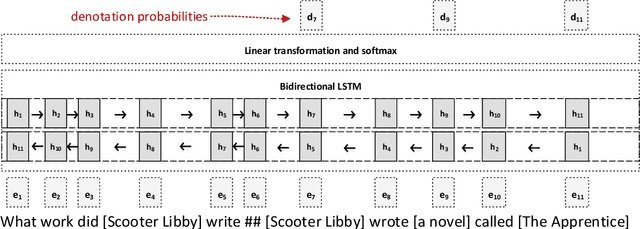
Abstract:This paper presents a novel task using real user data obtained in human-machine conversation. The task concerns with denotation extraction from answer hints collected interactively in a dialogue. The task is motivated by the need for large amounts of training data for question answering dialogue system development, where the data is often expensive and hard to collect. Being able to collect denotation interactively and directly from users, one could improve, for example, natural understanding components on-line and ease the collection of the training data. This paper also presents introductory results of evaluation of several denotation extraction models including attention-based neural network approaches.
Hybrid Dialog State Tracker with ASR Features
Feb 21, 2017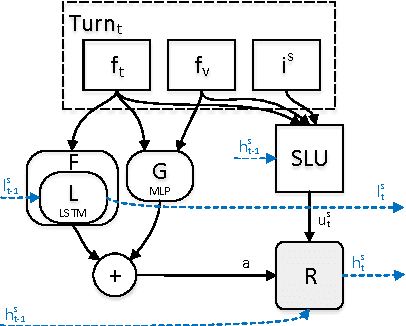
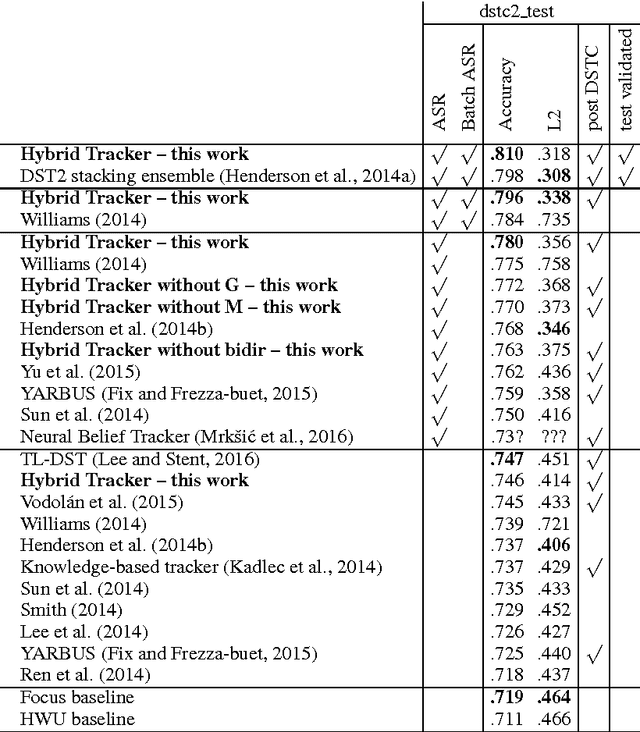
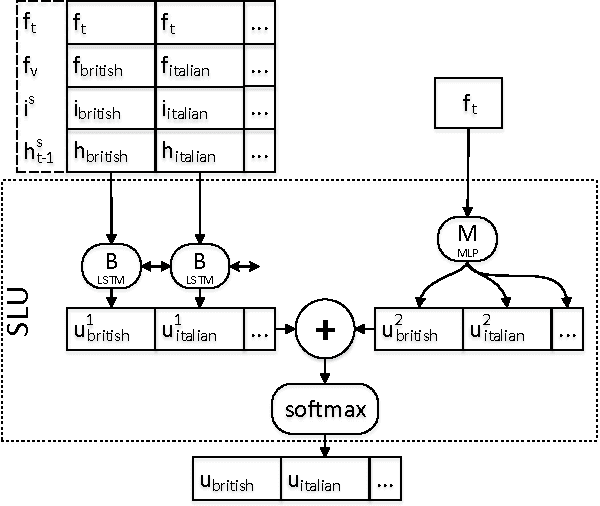
Abstract:This paper presents a hybrid dialog state tracker enhanced by trainable Spoken Language Understanding (SLU) for slot-filling dialog systems. Our architecture is inspired by previously proposed neural-network-based belief-tracking systems. In addition, we extended some parts of our modular architecture with differentiable rules to allow end-to-end training. We hypothesize that these rules allow our tracker to generalize better than pure machine-learning based systems. For evaluation, we used the Dialog State Tracking Challenge (DSTC) 2 dataset - a popular belief tracking testbed with dialogs from restaurant information system. To our knowledge, our hybrid tracker sets a new state-of-the-art result in three out of four categories within the DSTC2.
Data Collection for Interactive Learning through the Dialog
May 15, 2016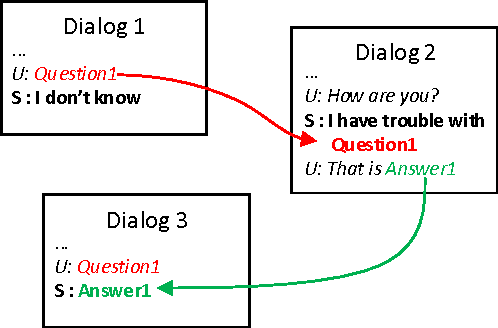

Abstract:This paper presents a dataset collected from natural dialogs which enables to test the ability of dialog systems to learn new facts from user utterances throughout the dialog. This interactive learning will help with one of the most prevailing problems of open domain dialog system, which is the sparsity of facts a dialog system can reason about. The proposed dataset, consisting of 1900 collected dialogs, allows simulation of an interactive gaining of denotations and questions explanations from users which can be used for the interactive learning.
Hybrid Dialog State Tracker
Jan 14, 2016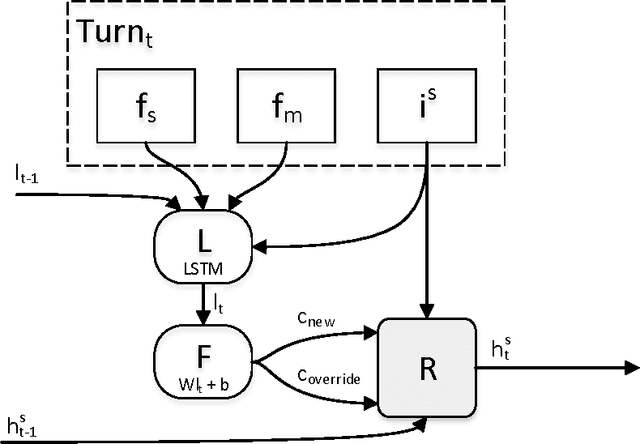
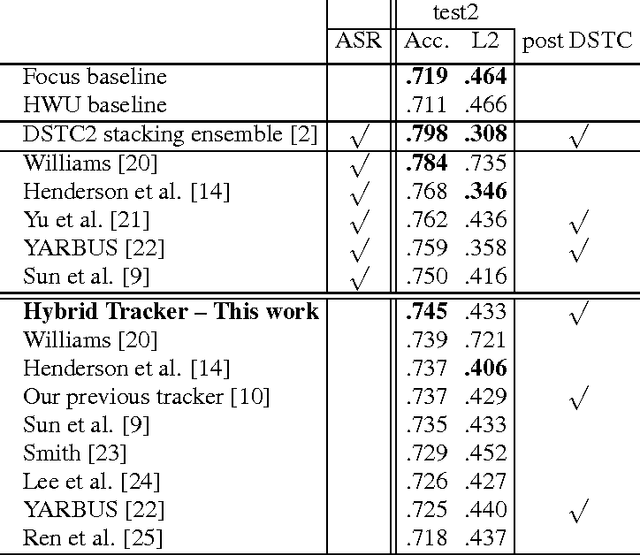
Abstract:This paper presents a hybrid dialog state tracker that combines a rule based and a machine learning based approach to belief state tracking. Therefore, we call it a hybrid tracker. The machine learning in our tracker is realized by a Long Short Term Memory (LSTM) network. To our knowledge, our hybrid tracker sets a new state-of-the-art result for the Dialog State Tracking Challenge (DSTC) 2 dataset when the system uses only live SLU as its input.
 Add to Chrome
Add to Chrome Add to Firefox
Add to Firefox Add to Edge
Add to Edge